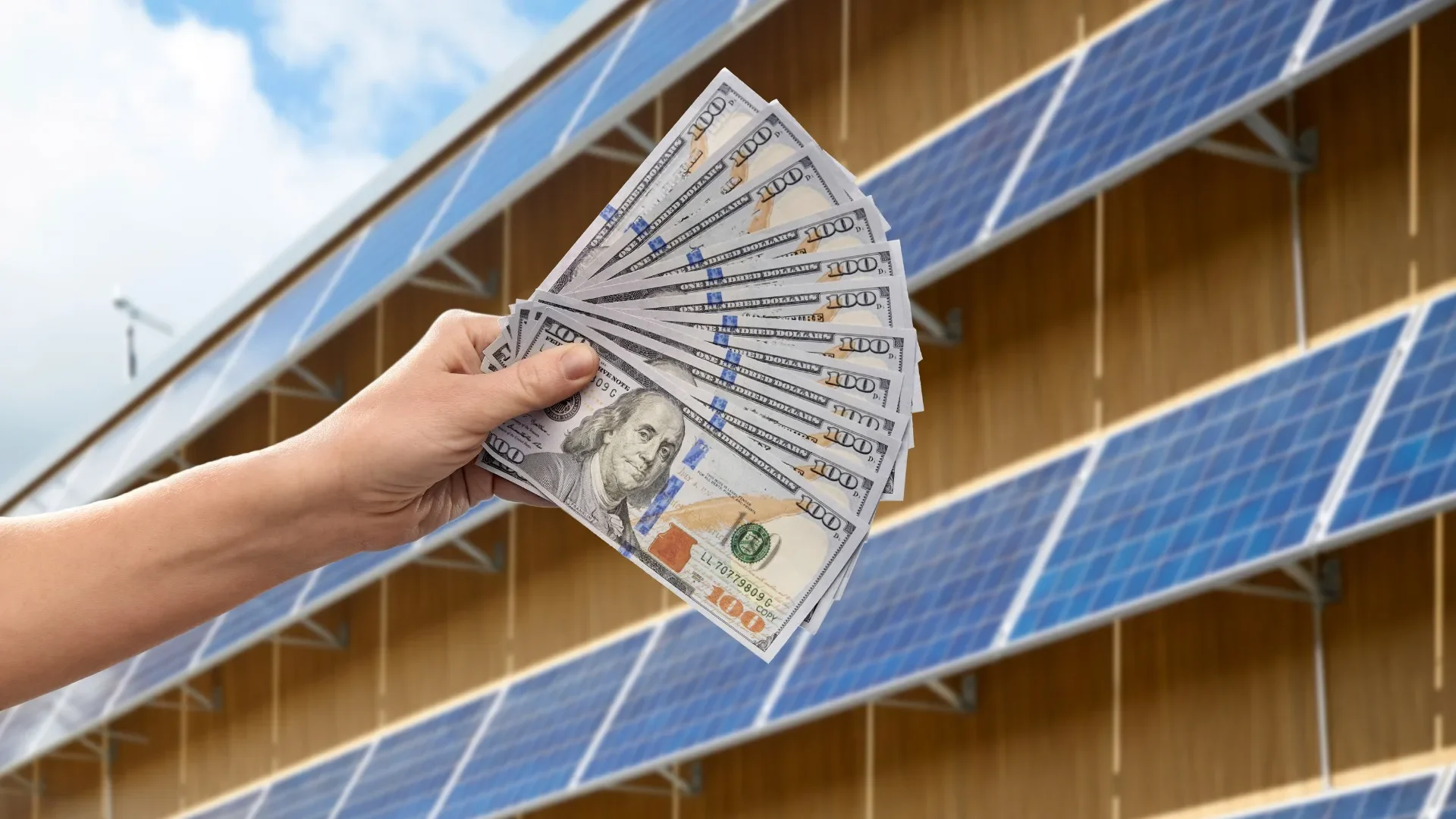
Are you curious about how a loan can make it easier to go solar and enjoy the benefits of solar energy? In this comprehensive guide, we’ll explore everything you need to know about using a solar loan or another financing option to pay for solar panels. We’ll look into solar panel financing options, discover how a solar pv system works, and discuss why residential solar is not just an eco-friendly choice but also a smart financial move. By the end, you’ll be equipped with insights on how to finance your solar setup, whether you’re interested in a loan to finance your solar or other methods that make the process more affordable and accessible. This article is worth reading because it demystifies the complexities of solar financing and helps you figure out the best way to set up your solar panels without breaking the bank.
One of the most popular ways to fund a solar project is through a solar loan. But what exactly is a solar loan, and how do these loans work? Simply put, a loan of this type is designed for homeowners who want to purchase a solar panel system but do not have the full amount of money upfront. A solar loan provides loan proceeds specifically for including solar technology in your home improvement plans. When you secure a loan for residential solar installation, you’ll receive a lump sum to cover solar panel costs, and then you’ll make loan payments over a set term until the debt is fully repaid.
A major advantage of a solar loan is the ability to own your solar panels outright, unlike a solar lease, where a company owns the solar equipment on your roof. By opting for a solar loan, you can claim any available tax credit, such as the federal solar tax credit, and reap the benefits of increased home value over time. Remember, however, that loans don’t come free: You’ll need to carefully compare the interest rate offered by different providers, whether it’s a credit union or a traditional bank. The lowest rates go to borrowers with strong credit scores, but even if your score is modest, you may still qualify for a loan amount that suits your budget.
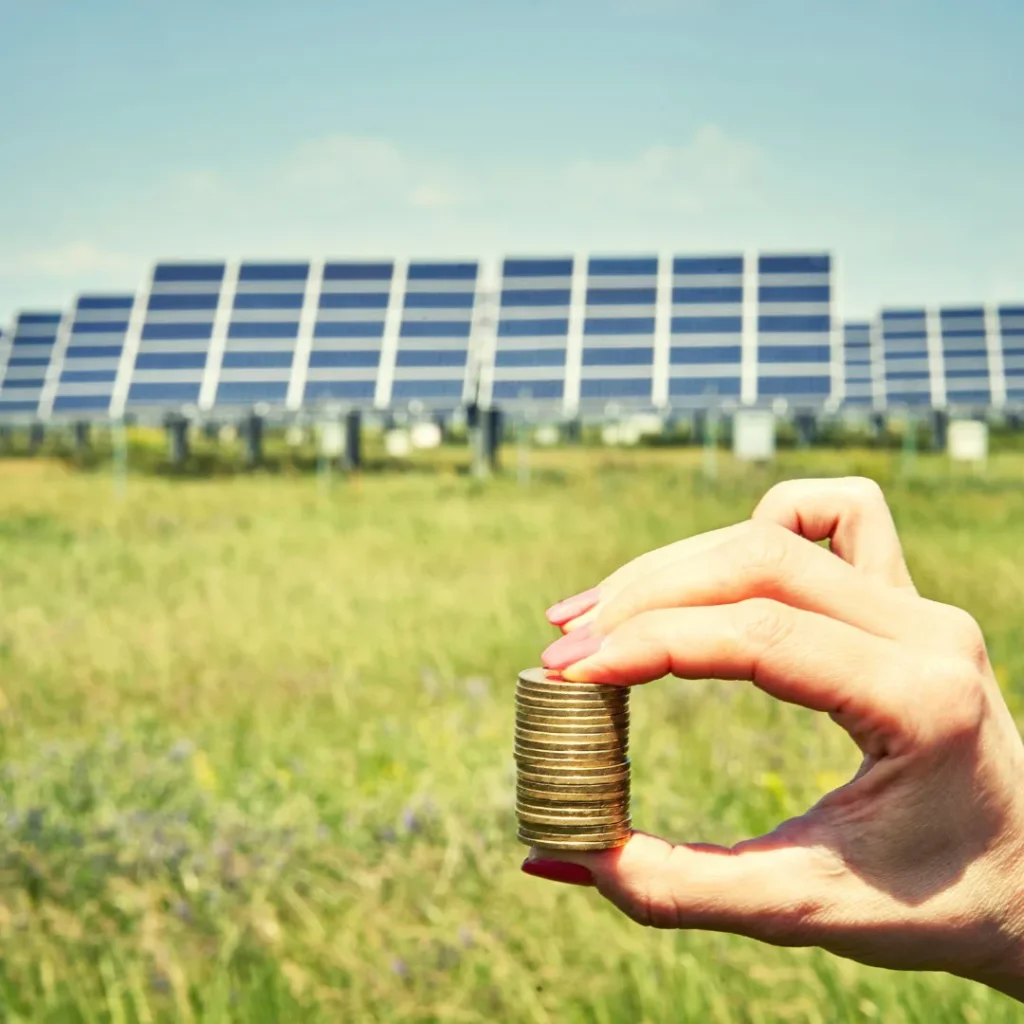
Homeowners often wonder, “How much do solar panels cost?” The cost of your solar panel system depends on factors like your location, local incentives, and the size of your rooftop solar array. Another big question is, “What are the ways to finance solar panels?” Fortunately, there are multiple financing options to make solar systems in their homes a reality.
You could consider a personal loan from a credit union, home-equity-based financing (like a home equity loan), or even specialized solar-lending institutions. These ways to finance solar panels help you spread out the expense, meaning you won’t have to shell out the entire cost of your solar setup in one go. With these options, you can pay for your solar using monthly installments at a predictable monthly payment, though it’s important to confirm you can comfortably manage the loan amount and interest rate before committing.
When looking for a financing option to install a solar panel system, turning to a credit union for a personal loan is worth considering. A credit union often offers lower interest rate deals than traditional banks, especially for home improvement projects like the installation of solar panels. Because many credit union loans come with fewer hidden fees, this path could be ideal if you’re prioritizing affordability and simplicity.
However, remember that your credit score will play a role in determining whether you can secure a favorable interest rate on a loan. If you have stronger credit, you’ll likely receive better terms and lower monthly loan payments. Keep in mind that a personal loan for your solar project means you won’t necessarily need to use your home as collateral, as you would with a home equity loan or line. While that reduces risk to your property, an unsecured personal loan might come with a higher interest rate if your credit score is lower. Weigh these pros and cons carefully when selecting the right option for solar financing.
Some homeowners choose to go solar by signing a solar lease—an arrangement where you lease your solar energy system from a third-party provider. This type of solar financing can be appealing because you pay a fixed monthly rate (or close to it) instead of a hefty upfront cost. Plus, the leasing company is usually responsible for maintaining the solar power systems on your roof.
However, a solar lease can limit certain financial benefits. For instance, you won’t be able to claim the tax credit, and if you decide to sell your home, you’ll need to manage the lease transfer. Moreover, the monthly payment for a solar lease may increase over time. Before deciding to lease, compare it to a loan or a home equity financing solution. In many cases, the long-term benefits of ownership through a solar loan or a cash purchase can exceed the short-term convenience of a lease. Still, for some homeowners, the ease of not owning or maintaining the system is worth it.
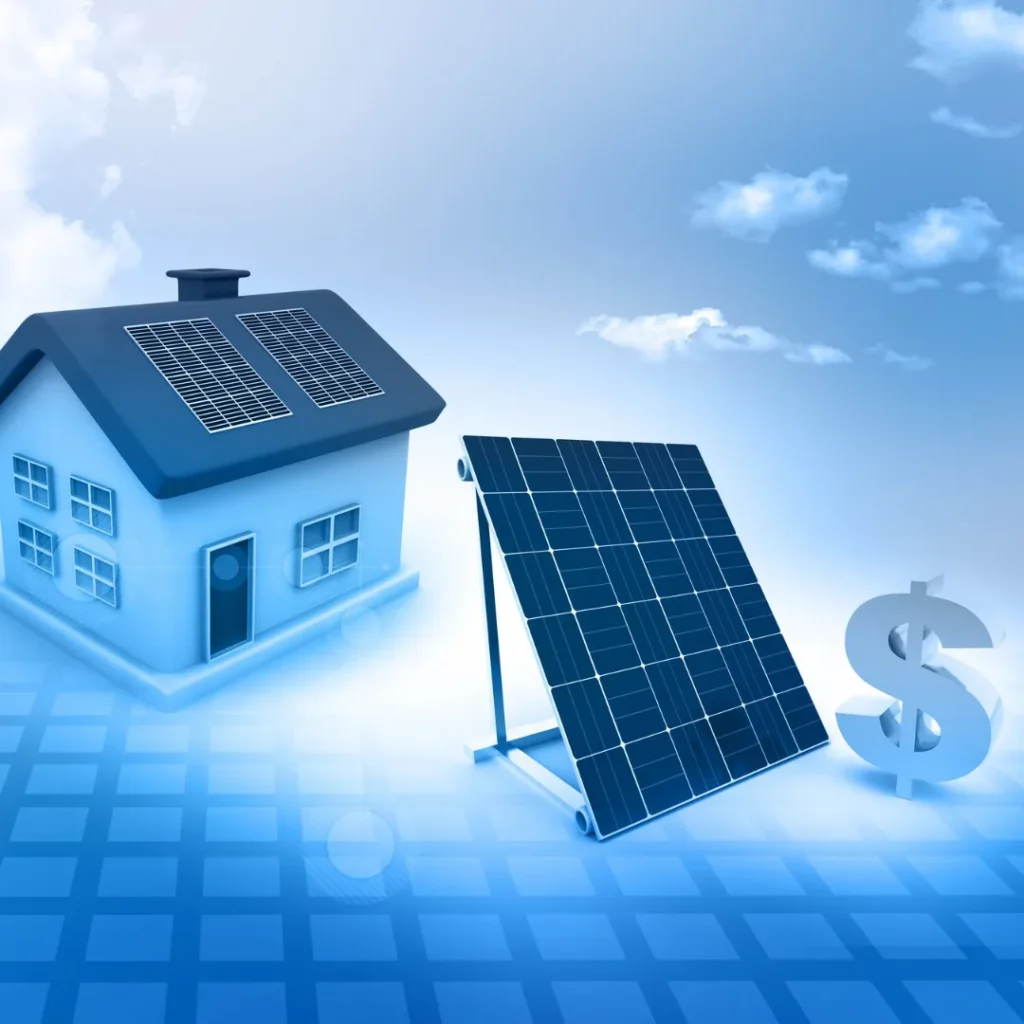
When you install solar panels, you may be eligible for a tax credit—often referred to as the federal solar tax credit. This credit allows you to deduct a percentage of your solar panel installation costs from your federal taxes. Because residential solar has become a key growth sector, both federal and state governments encourage homeowners to consider a solar investment.
It’s important to note that the exact percentage for the tax credit can vary and is subject to legislative changes. According to the solar contractor community and solar marketplace trackers, leveraging this tax credit can significantly reduce the net price of your solar project. If you’re wondering why the residential solar market has been skyrocketing, the availability of these incentives is a big part of it. To maximize your savings from solar, start by checking whether your state or local government offers additional rebates or incentives on top of the federal program.
When adding solar to your property, it’s helpful to compare your top solar financing options. This includes choosing a solar loan, a solar lease, or making a cash purchase:
Solar Loan: With a solar loan, you own the solar panel system, thereby qualifying for tax credit benefits and long-term property-value gains. However, you’ll make regular loan payments that come with an interest rate. Solar loans are typically structured with terms of 5 to 20 years, meaning you can select a repayment period that matches your budget.
Solar Lease: As mentioned, a solar lease helps you go solar with little to no upfront cost. But you won’t own the solar equipment, which means you forfeit ownership-related incentives. For some people, this trade-off might be worth it because you avoid maintenance responsibilities.
Cash Purchase: Paying for a solar panel system with cash delivers the highest immediate return on investment, as you won’t have any loan payments or ongoing lease fees. Still, you need sufficient funds upfront, which can be a big barrier. If you can manage it, you’ll likely enjoy the fastest solar savings.
If you’re still uncertain, you can use a solar savings calculator to estimate the cost of your solar panel system and how each financing option compares. This can help you figure out whether a solar loan, solar lease, or cash purchase is best for your financial situation.
Whenever you take out a loan amount—whether it’s a personal loan, home equity loan, or specialized solar loan—the interest rate plays a crucial role in how affordable your financing will be in the long run. A seemingly small difference in interest rate can affect your monthly and overall loan costs significantly.
For instance, an 8% rate vs. a 5% rate can lead to thousands of dollars in additional payments over time. That’s why some homeowners prefer to apply for a loan through a credit union that offers competitive rates or to shop around for the best deal. Checking multiple lenders helps you ensure that the loan amount and terms make sense for your budget. Keep in mind that loans typically have a range of qualifications, so always confirm your credit score, the length of your repayment term, and whether the lender imposes any early payoff penalties.
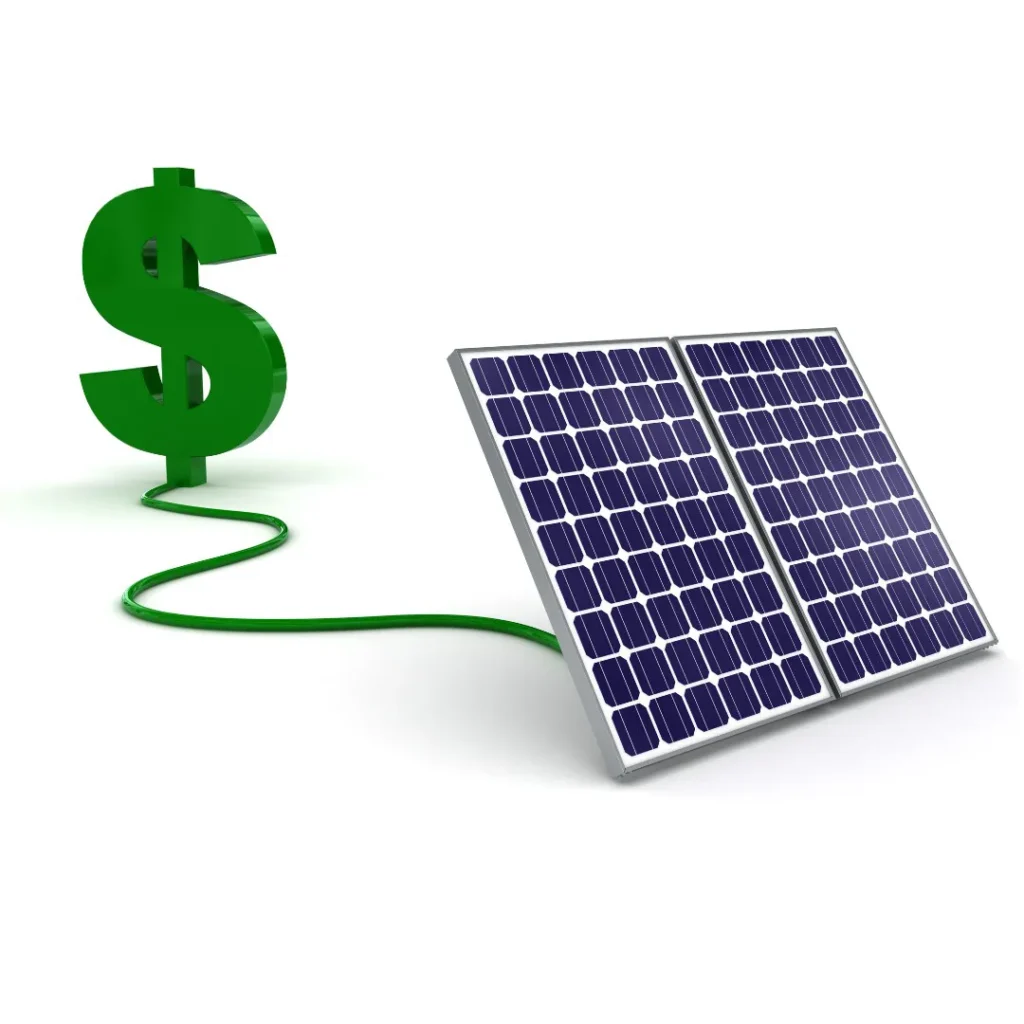
One of the most common ways to finance solar panels is by tapping the equity in your home through a home equity loan or line of credit. A home equity loan or line (often referred to as home equity loans and helocs) uses your home as collateral, which can secure a lower interest rate compared to an unsecured personal loan. This approach can make the cost of your solar system much more manageable over time.
That said, you need to be aware of the risks. If you default on the loan, the lender has the right to foreclose on your property. For homeowners with stable financial situations, using home equity financing can be a strategic move for their residential solar panel installations. When you take out a loan or line of credit based on your home’s equity, you may also consolidate other home improvement costs—including solar panel installation—all within a single financing structure.
Some individuals prefer not to use their home as collateral, making an unsecured solar loan or a personal loan an attractive option. While these loans work without tying up your property, they can come with a higher interest rate, especially for borrowers with average credit scores. Still, an unsecured loan may be the best approach for those who don’t want to risk their home or deal with the paperwork associated with a home equity loan or line.
Similarly, you can fund home improvement projects like adding solar through general personal loan products. A personal solar loan might also come with flexible terms that let you spread out your loan payments in a comfortable way. Just note that if you’re financing your solar installation via an unsecured route, you’ll want to shop diligently for lenders that offer favorable terms. Whether you go with a specialized unsecured solar solution or a typical consumer loan, you’ll want to ensure that the loan amount, repayment period, and fees align with your household budget.
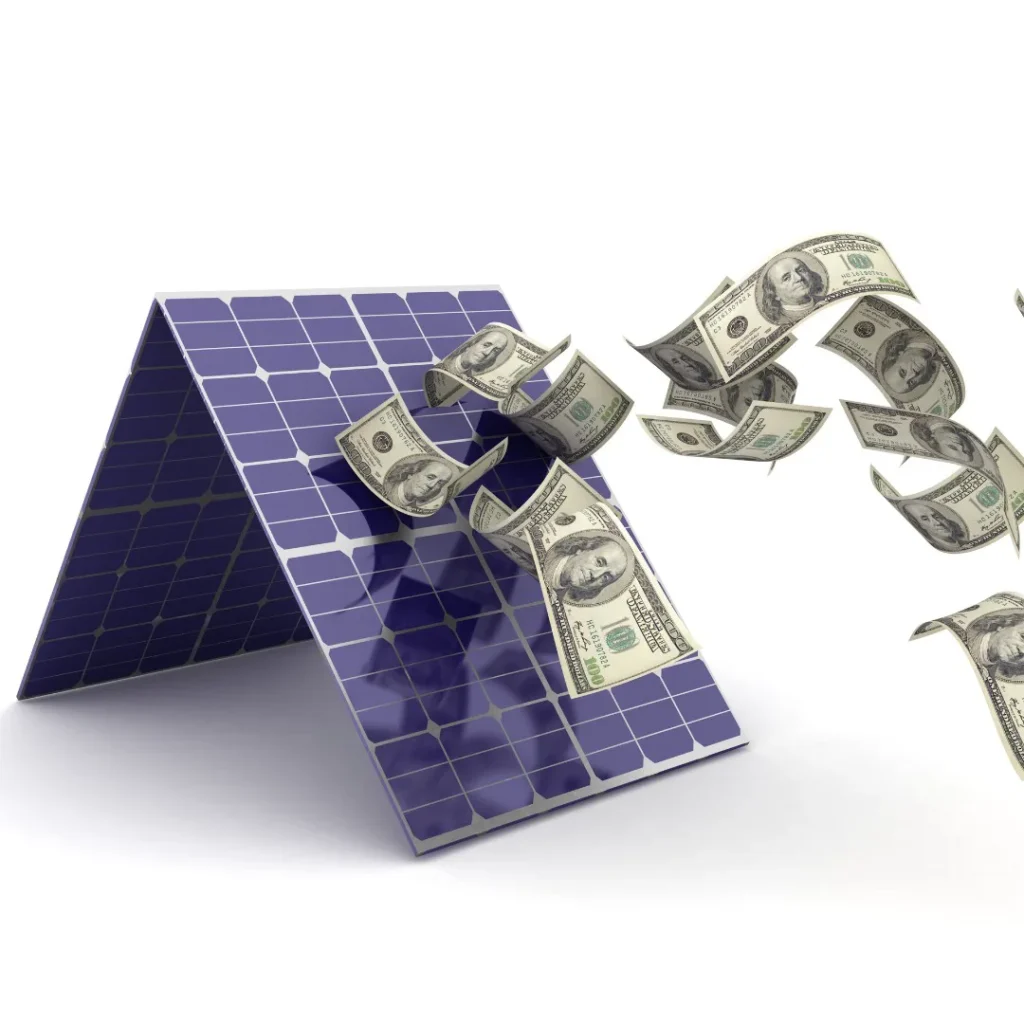
Choosing the best solar approach for your household starts with comparing solar prices. The residential solar projects market is booming, and you’ll find myriad installers and lenders vying for your business. Request multiple quotes for both the solar equipment and the loan aspect. Remember, the cost of your solar panel setup can vary widely based on solar contractor rates, your location, and the specifics of your roof.
One of the easiest ways to make solar a solid financial move is to pay a fixed monthly rate on a loan that’s lower than your monthly electricity bill. If you lock in an affordable monthly payment, you could see immediate savings compared to your typical monthly electricity costs—especially if utility rates rise over the years. If you purchase solar panels or choose a loan to finance your solar, you’ll eventually own the system outright and enjoy practically free energy after you’ve repaid the loan. This can lead to substantial savings from solar in the long run. With resources like a solar savings calculator and thoughtful research into solar panel financing options, you can find a way to pay for solar that aligns with your financial goals.
By taking these points into account, you’ll be ready to determine the ideal loan or financing option for your residential solar setup. Whether you choose to secure a home equity loan, a personal loan, or go with solar leases and ppas, you can pay for your solar system in a way that aligns with your financial and environmental goals. Once you’ve picked the right financing solution, you’ll be on your way to harnessing the clean, renewable power of the sun for years to come.